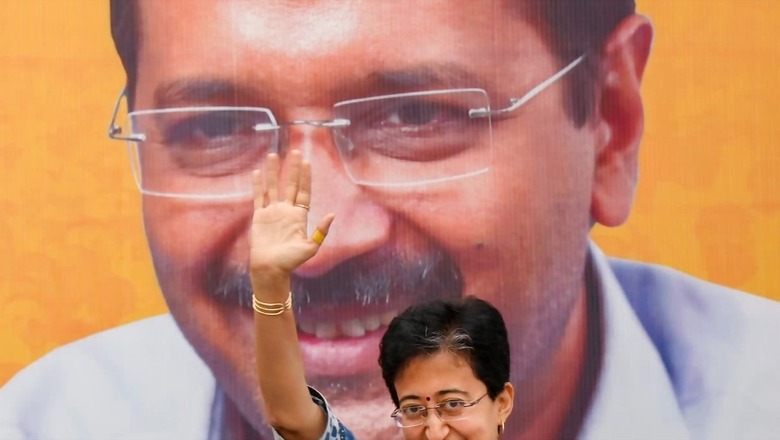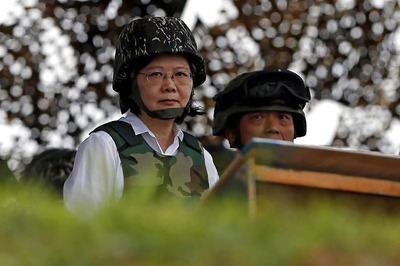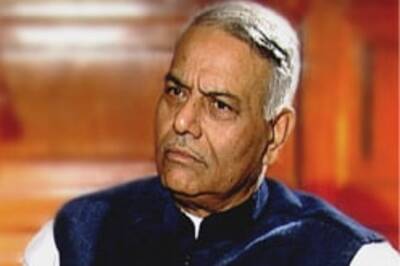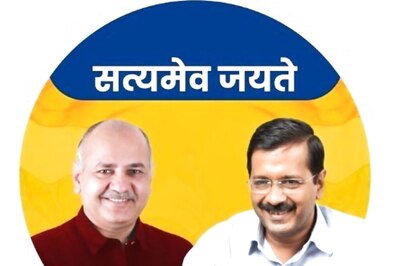
views
Whichever way you cut it due process loses. Aam Aadmi Party supremo Arvind Kejriwal who is not trusted by the Supreme Court to enter his office or sign a file has today made a decision that will be supremely consequential for New Delhi. Kejriwal has unambiguously entrusted himself with the delicate task of deciding on the people’s behalf who will replace him as chief minister. But the crown will sit uneasy atop Atishi’s coiffed head.
As Kejriwal’s “selected stand-in”, Atishi’s legitimacy to hold office is being questioned by rivals. This is unfair on her and on Delhi’s voters.
Even if she is to rule for five months, wouldn’t it have been so much better if the succession had been put to an honest vote in the AAP legislature party? What if there were other deserving candidates who enjoyed the confidence of the legislators? This we will never know.
Rishi Sunak for example won the Prime Minister’s post in the UK after he won a closely fought Conservative Party leadership election in October 2022. Under the rules of the British Conservative Party leadership contest, Sunak needed to have the support of at least 100 Conservative MPs. There may have been question marks around Sunak’s future electability but certainly never any around his legitimacy as PM.
But back to AAP and the succession tamasha. Can Atishi govern persuasively for the remainder of the AAP government’s tenure or is she, as her detractors point out, a mere “puppet CM”? A proxy with little authority to veto a policy that may be good for AAP but not the public interest.
The stealthy transfer of post and power is also uncharacteristic of how AAP likes to do things. Usually, when it comes to making consequential decisions, the party likes to seek a referendum. That is, go to the people. A few months ago, AAP asked people nationwide if CM Kejriwal should run the Delhi government from jail if he were arrested. One fails to understand why it couldn’t seek a similar referendum to pick his successor.
Anyway, as they say, what’s done is done. AAP’s top boss Arvind Kejriwal is now free to head to the people’s court to, in his words, “seek a certificate of honesty from Delhi voters”. In other words, if Kejriwal steers AAP to win the assembly polls in Delhi, he can claim the moral authority to reclaim the CM’s post.
Kejriwal won’t be the first or the last to play the “jail ka badla vote” card. In fact, he is in August company. Or not so August company.
Kashmiri separatist, Engineer Rashid, booked under UAPA for alleged terror funding, won the Lok Sabha 2024 election from Baramulla. His sons went to the people with the audacious “jail ka badla vote” plank. The people responded overwhelmingly by cocking a snook at the Indian judicial system.
Khalistani separatist, Amritpal Singh, booked under UAPA and for sedition, won the Lok Sabha 2024 election from Khadoor Sahib as his supporters projected him as a Sikh nationalist and anti-drug crusader. Clearly, the people were convinced of his bona fides.
The impish Rashtriya Janata Dal supremo, Lalu Prasad Yadav, won the Lok Sabha election from Madhepura in 2008. He won even though he had stepped down as CM in connection with the fodder scam case years earlier. After Lalu was convicted in 2013, he was barred from contesting elections for six years. But in the 2015 Bihar assembly elections, RJD still made a major comeback by emerging as the single largest party. The RJD claimed the people had avenged the Supreme Court.
Mohammad Shahabuddin, the “Professor Moriarty of murder”, won the 2004 Lok Sabha elections from Siwan despite contesting from jail where he was lodged eight months earlier in connection with one of many high-profile political homicide cases. Such was the fear of the dreaded don that the opposition largely stayed away from the contest in Siwan.
These are but a few examples. Going by ex-CM Kejriwal’s logic, these worthies must also be honest and free to reclaim the moral high ground because the “public exonerated them”. The question begs to be asked: Isn’t it dangerous to let demagoguery undermine due process?




















Comments
0 comment